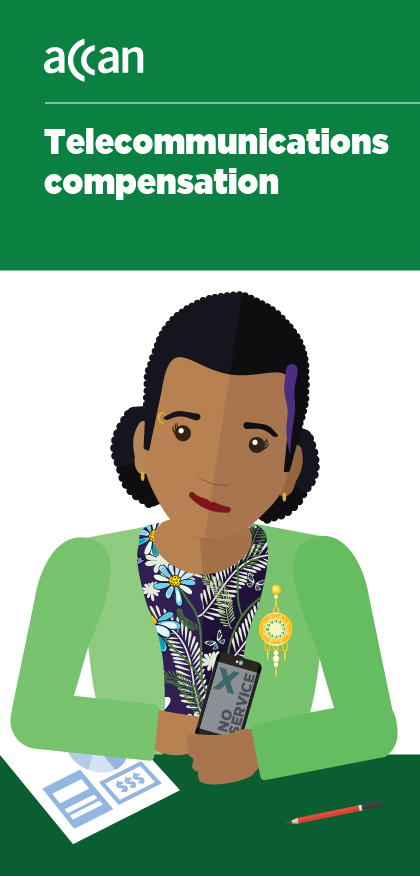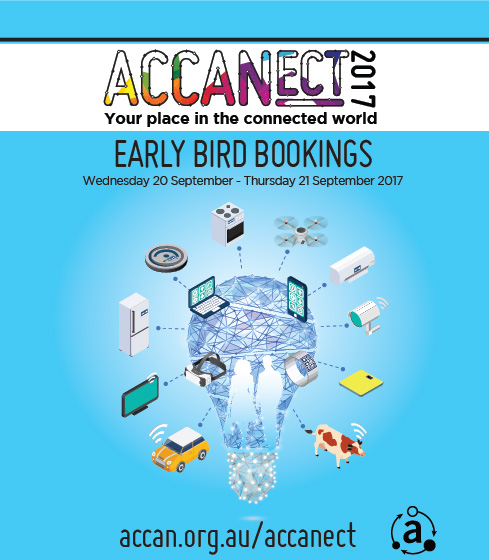- Details
The Telecommunications Reform Package legislation, introduced to Parliament today, includes a guarantee for all premises to access broadband services.
National Farmers’ Federation Chief Executive, Tony Mahar said the legislation was a win for the Regional, Rural and Remote Communications Coalition and the consumers it represented.
"This is a significant first step to ensuring all premises across the country have access to broadband services, capable of at least 25Mbps per second download and 5Mbps upload speeds."
Mr Mahar said the Coalition was glad to see other improvements to the Bill, which aim to stop the handballing of complaints between network and internet providers and to get complaints addressed more quickly.
"The bill also allows regional services to be funded sustainably and transparently into the future with the Regional Broadband Scheme.
Read more: Broadband wins for regional consumers but reliable telephone services remain a concern
- Details
The Australian Communications Consumer Action Network (ACCAN) welcomes changes to the Telecommunications Reform Package legislation introduced into Parliament today as a big win for all consumers. A number of ACCAN’s concerns will be addressed by the legislation as it contains improved consumer protections.
In particular, ACCAN is pleased to see these changes:
- Statutory Infrastructure Provider provisions will now ensure that all premises can access a network capable of delivering peak retail plans of 25Mbps download speed and 5Mbps upload speeds.
- That no areas will be exempt from the provision.
- Voice capability will be ensured over fixed line and fixed wireless areas.
The Regional Broadband Scheme, which is also included in the legislation, will ensure regional services are funded sustainably and transparently. There are economic and societal benefits in having everyone connected, therefore ensuring that broadband services are funded sustainably into the future is vital.
Read more: Big consumer wins in Telco Reform Package legislation
- Details
Your place in the connected world
ACCANect 2017
20-21 September, Sydney
Digital technology has transformed consumer experiences around the world. Everything will be connected: devices, houses, transport, food production, health and government services. The “always connected” world raises big questions.
Join us at ACCANect 2017 and help shape the future for connected consumers.
Read more: ACCAN conference announcement
Write comment (2 Comments)- Details
The Australian Communications Consumer Action network (ACCAN), with support from Disability Discrimination Commissioner, Alastair McEwin, calls on the Turnbull Government to increase access services for people of all abilities across free-to-air television – which is still our foremost medium for news, information and entertainment. ACCAN is calling for increased captioning across free-to-air multi-channels (like Go and 7Mate) and for the introduction of 14 hours of audio description on ABC and SBS. The call for more accessible television coincides with Global Accessibility Awareness Day.
“The government’s recently announced proposal to eliminate television broadcast licence fees, resulting in a $90 million per year windfall for broadcasters, should be contingent on broadcasters providing greater access services for viewers with disability,” said ACCAN Disability Policy Advisor, Wayne Hawkins. “We have been told for many years that these access services are just not sustainable from both the industry and the government. However, this huge windfall should allow broadcasters to finally make television more accessible to Australians.”
Read more: ACCAN calls for more accessibility on free-to-air TV
- Details
 What are your rights?
What are your rights?
Network outage? No service? Call failure?
- If you have been disadvantaged or lost money due to a phone or internet outage, you might be able to claim compensation.
- Compensation should make up for your loss.
- For example, if your internet is out for one week you could ask for your money back for that week. You may be able to claim for costs incurred, like getting your internet fixed or using extra mobile data.
Read more: Telecommunications compensation
Write comment (2 Comments)
- Details
The ACCC, after consultation and consideration, made a draft decision to reject the nbn’s proposed variation to the Special Access Undertaking. This was due to consideration that a number of the proposed changes are not in the interest of consumers. Additionally, the ACCC asked further questions in relation to nbn charges over the Multi Technology Mix.
- Details
The Australian Communications Consumer Action Network (ACCAN) welcomes the ACCC’s draft decision to not declare a wholesale domestic mobile roaming service. In its submission to the ACCC Inquiry, ACCAN questioned whether regulated domestic roaming would result in better mobile coverage and improved competition in regional, rural and remote areas. ACCAN notes the ACCC’s finding that there is insufficient evidence that declaring domestic mobile roaming would lower prices for rural and regional consumers.
“ACCAN is a strong advocate for better mobile coverage and improved competition in regional and rural areas,” said ACCAN CEO, Teresa Corbin. “Consumers and small businesses in regional, rural and remote areas want additional coverage where they live, work and travel. It’s unclear whether declaring domestic mobile roaming would achieve this.
Read more: ACCAN supports ACCC draft decision to not declare domestic mobile roaming
- Details
The Australian Senate Community Affairs Committee has conducted an inquiry into the outcomes of the National Disability Strategy.
ACCAN was pleased to be able to make a submission to the inquiry highlighting the key areas in which consumers with disability are struggling to get and stay connected to communications services:
Read more: Delivery of outcomes under the National Disability Strategy 2010-2020
- Details
 In April, some members of the Regional, Rural and Remote Communications Coalition had their say on issues relating to the NBN rollout at public hearings in front of the Joint Parliamentary Standing Committee on the National Broadband Network.
In April, some members of the Regional, Rural and Remote Communications Coalition had their say on issues relating to the NBN rollout at public hearings in front of the Joint Parliamentary Standing Committee on the National Broadband Network.
This blog summarises the issues highlighted by AgForce Queensland, Better Internet for Rural, Regional & Remote Australia (BIRRR) and ACCAN at these hearings. Transcripts for the hearings and submissions to the Committee are available online.
Read more: Bush Coalition members outline NBN concerns
Write comment (1 Comment)- Details
 Recently ACCAN has heard increasing reports about fraudulent mobile number porting and identity theft.
Recently ACCAN has heard increasing reports about fraudulent mobile number porting and identity theft.
What is a mobile number porting scam?
Fraudulent mobile number porting happens when a scammer uses your personal details to port your mobile number from one provider to another. Scammers can get access to your personal details, such as your date of birth, phone number and address, via your social media profiles.
Read more: Fraudulent mobile number porting and identity theft
Write comment (78 Comments)- Details
The first thing that you should do if you are struggling to pay a bill is contact your service provider so you can discuss your options. Your provider can set up a payment plan for you, and while this is in place they will not report your debt to a Credit Reporting Agency.
Below are the contact details for some of the main service providers.
- Details
Centrelink Telephone Allowance
If you have a Pensioner Concession Card or Commonwealth Seniors Health Card, you might be eligible for the Government’s Telephone Allowance, as included in the Pensioner Supplement or Seniors Supplement.
You can read more information about whether you can get the Centrelink Telephone Allowance by clicking here.
Telstra Pensioner Discount
The Telstra Pensioner Discount provides eligible pensioner customers with a monthly call discount on their Telstra home phone service.
If you are eligible for the discount, you can also get free access to Call Control, a waiver on late payment fees, and fee-free payment options.
You can register by calling Telstra on 13 2200.
Telstra Disability Equipment Program
This program provides Telstra customers with products that make calling easier for people with disability. These products include phones with larger buttons, visual alerts, cochlear implant adaptors, and teletypewriters (TTY). If you are eligible you can rent the equipment for the same price as a normal phone handset.
For more information:
- Visit Telstra’s disability services page.
- Call the Telstra Disability Enquiry Hotline (Mon – Fri 8am – 5pm EST) on
- 1800 068 424 (voice)
- 1800 808 981 (TTY).

